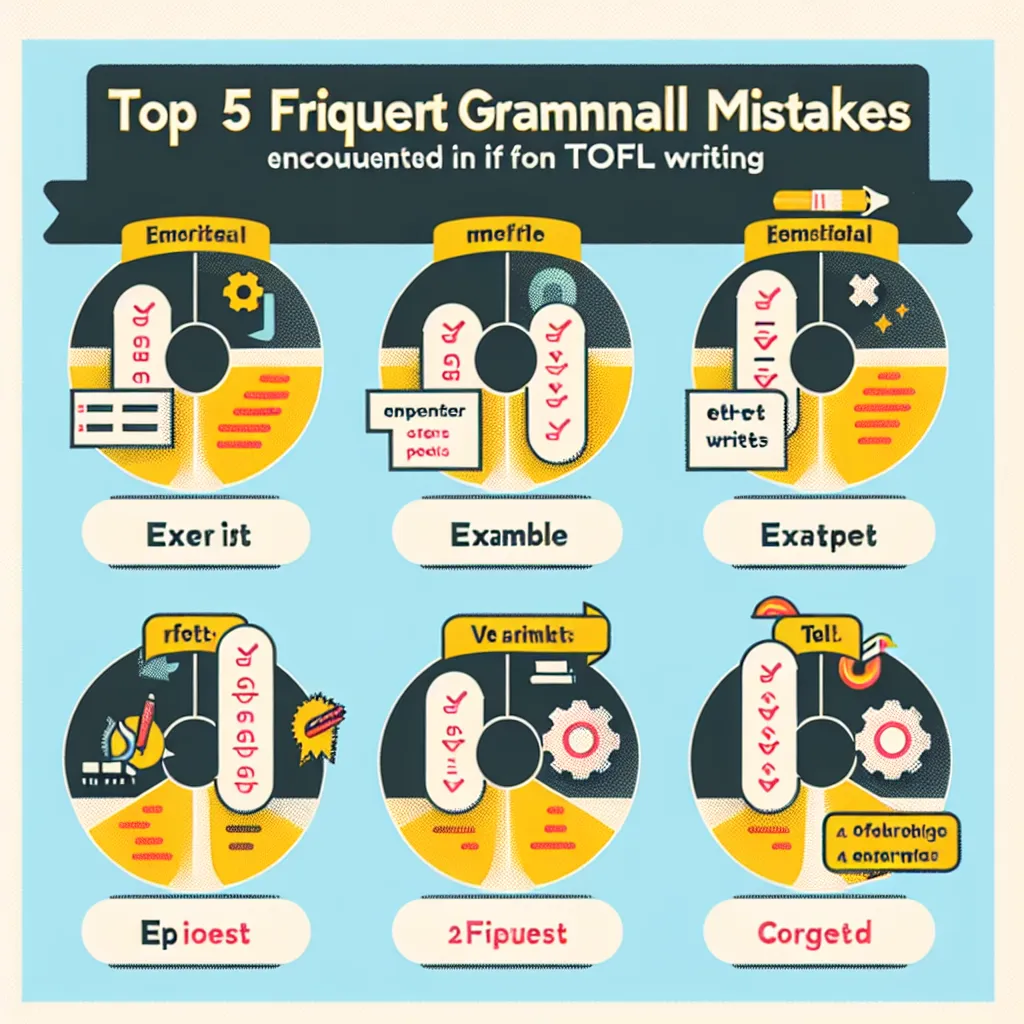Are you preparing for the TOEFL exam and looking to enhance your grammar skills for the Writing section? You’ve come to the right place! As an experienced TOEFL instructor and content creator for LearnEnglish.NET, I’ll guide you through effective strategies to improve your grammar and boost your TOEFL Writing score.
Understanding the Importance of Grammar in TOEFL Writing
Grammar plays a crucial role in the TOEFL Writing section. It’s one of the key criteria used to evaluate your essays, alongside task fulfillment, vocabulary, and coherence. Strong grammar skills not only help you express your ideas clearly but also demonstrate your proficiency in English, which is essential for achieving a high score.
 TOEFL Writing Section
TOEFL Writing Section
Key Strategies to Improve Grammar for TOEFL Writing
1. Master the Fundamentals
Before diving into complex grammatical structures, ensure you have a solid grasp of the basics:
- Subject-verb agreement
- Verb tenses
- Articles (a, an, the)
- Prepositions
- Pronouns
Regularly review these fundamental concepts and practice using them correctly in your writing.
2. Study Advanced Grammar Structures
Once you’re comfortable with the basics, focus on more advanced grammar points that can elevate your writing:
- Conditional sentences
- Relative clauses
- Passive voice
- Parallel structure
- Gerunds and infinitives
Familiarize yourself with these structures and incorporate them into your essays to demonstrate a higher level of English proficiency.
3. Read Extensively
Reading is an excellent way to improve your grammar naturally. Expose yourself to a variety of well-written texts, such as:
- Academic journals
- News articles from reputable sources
- Literary works
Pay attention to sentence structures, word usage, and how ideas are connected. This will help you internalize correct grammar patterns and improve your overall writing style.
4. Practice Writing Regularly
Consistent practice is key to improving your grammar for TOEFL Writing. Set aside time each day to write:
- Short paragraphs on various topics
- Timed essays mimicking TOEFL questions
- Responses to sample TOEFL prompts
The more you write, the more comfortable you’ll become with applying grammar rules in context.
5. Use Grammar Checking Tools Wisely
While grammar checkers can be helpful, don’t rely on them exclusively. Use tools like Grammarly or ProWritingAid to:
- Identify recurring errors in your writing
- Learn from your mistakes
- Double-check your work before submission
Remember, these tools are not perfect, so always review their suggestions critically.
6. Learn from Your Mistakes
Mistakes are valuable learning opportunities. When you receive feedback on your writing:
- Analyze the grammatical errors you’ve made
- Understand why they’re incorrect
- Practice using the correct forms in new sentences
Keep a “grammar error log” to track your progress and focus on areas that need improvement.
Common Grammar Pitfalls in TOEFL Writing
Be aware of these frequently occurring grammar issues in TOEFL essays:
- Incorrect use of articles (a, an, the)
- Subject-verb agreement errors, especially with complex subjects
- Inconsistent verb tenses throughout the essay
- Misuse of prepositions
- Run-on sentences or sentence fragments
By focusing on these areas, you can significantly improve the grammatical accuracy of your writing.
 Common Grammar Mistakes
Common Grammar Mistakes
Effective Grammar Practice Techniques
To make your grammar practice more effective, try these techniques:
-
Sentence combining: Take simple sentences and combine them using various grammatical structures.
-
Error correction: Review sample essays with intentional grammar mistakes and practice identifying and correcting them.
-
Paraphrasing exercises: Rewrite complex sentences using different grammatical structures while maintaining the original meaning.
-
Timed writing drills: Practice writing short paragraphs within strict time limits to improve your speed and accuracy.
-
Peer review: Exchange essays with a study partner and provide feedback on each other’s grammar usage.
Utilizing TOEFL-Specific Grammar Resources
Take advantage of resources specifically designed for TOEFL preparation:
- Official TOEFL practice materials from ETS
- TOEFL grammar workbooks and practice tests
- Online TOEFL writing courses with grammar modules
- TOEFL Writing sample essays with grammar annotations
These resources will help you focus on the grammar points most relevant to the TOEFL exam.
Incorporating Grammar Improvement into Your TOEFL Study Plan
To effectively improve your grammar for TOEFL Writing, integrate these strategies into your study routine:
- Dedicate 30 minutes daily to grammar exercises
- Review one advanced grammar concept each week
- Write at least one practice essay every two days
- Read academic texts for 1 hour daily, noting interesting grammatical structures
- Seek feedback on your writing from a tutor or language exchange partner weekly
Consistency is key – stick to your study plan to see significant improvements in your grammar skills.
Conclusion
Improving your grammar for TOEFL Writing requires dedication, practice, and a strategic approach. By focusing on fundamental and advanced grammar structures, reading extensively, practicing regularly, and learning from your mistakes, you can significantly enhance your writing skills and boost your TOEFL score.
Remember, perfecting your grammar is an ongoing process. Stay patient, remain consistent in your studies, and don’t be afraid to make mistakes – they’re all part of the learning journey. With these expert tips and strategies, you’re well on your way to mastering grammar for TOEFL Writing success.
Keep practicing, stay motivated, and watch your TOEFL Writing score soar! Do you have any specific grammar challenges you’re facing in your TOEFL preparation? Share them in the comments below, and let’s work together to overcome them.
[internal_links]
- TOEFL Writing Task Types: Integrated and Independent Tasks Explained
- Top TOEFL Writing Templates for High Scores
- Time Management Strategies for TOEFL Writing Section
- Vocabulary Expansion Techniques for TOEFL Success
[/internal_links]




